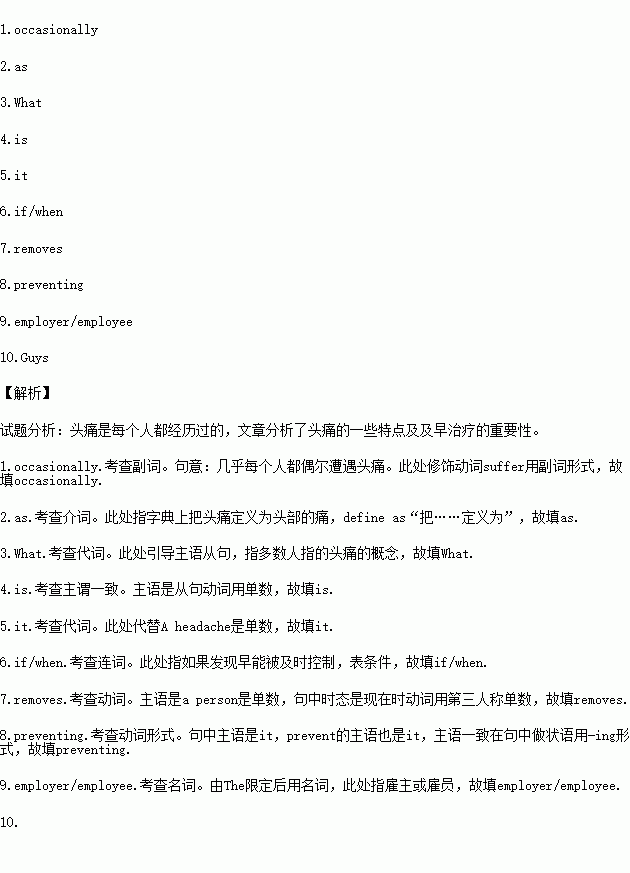题目内容
语法填空
阅读下面材料,在空白处填入适当的内容(1个单词)或括号内单词的正确形式。
Almost everyone suffers from a headache 1. (occasional). But some people suffer from repeated, frequent headaches.
What is headache? What causes it? What can you done about a headache? What research is being done on headaches? The dictionary defines headache simply 2. “a pain in the head”. 3. most people mean by headache 4. (be) a pain that lasts several minutes or hours. It covers the whole head, or one side of it, or perhaps the front or the back of the head. To add to the confusion about a definition, some people call tight feeling in the head a headache.
A headache is important because 5. can be the first warning of a serious condition which probably could be controlled 6. discovered early. If a person 7. (remove) the warning, day after day, with a pain-killer, he may pass the point of easy control.
A headache is important also because it disturbs people, 8. (prevent) them from living a happy life. The 9. (employ) with a headache does less work. In a flash of temper he may upset his fellow 10. (guy) or customers, causing a direct or indirect loss to his organization. The mother with a headache suffers and disturbs the family. She upsets her husband and children.

